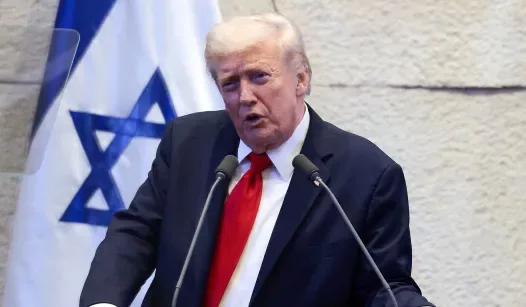The relationship between the United States and Israel has long been a focal point of American foreign policy, marked by varying degrees of support from different administrations. In recent years, the question of whether any U.S. president has been more pro-Israel than Donald Trump has gained traction. While Trump’s approach has drawn both fervent support and sharp criticism, it is essential to examine the nuances of his policies and rhetoric to understand his stance on Israel.
Trump’s presidency was characterized by several significant actions that underscored his commitment to Israel. One of the most notable was his decision to move the U.S. embassy from Tel Aviv to Jerusalem in 2017, a move that recognized Jerusalem as Israel’s capital. This decision was met with widespread approval in Israel and among many pro-Israel advocates in the United States, who viewed it as a long-overdue acknowledgment of historical and political realities.
Additionally, Trump’s administration played a crucial role in brokering the Abraham Accords, a series of normalization agreements between Israel and several Arab nations, including the United Arab Emirates and Bahrain. These agreements marked a significant shift in Middle Eastern diplomacy, breaking a long-standing stalemate and fostering new alliances in the region. Supporters of Trump argue that these achievements demonstrate a bold and innovative approach to foreign policy that prioritizes Israel’s security and diplomatic standing.
However, Trump’s pro-Israel stance has not been without controversy. Critics point out that his coalition includes isolationist factions and individuals who have expressed anti-Israel sentiments in the past. While Trump himself has consistently positioned himself as a staunch ally of Israel, the presence of these groups in his political base raises questions about the broader implications of his policies. Detractors argue that his administration’s actions sometimes favored certain Israeli interests at the expense of Palestinian rights and regional stability.
Moreover, Trump’s rhetoric often reflected a combative tone that resonated with his supporters but alienated some traditional allies. His administration’s approach to issues such as the Israeli-Palestinian conflict was marked by a significant departure from the diplomatic norms that had guided previous administrations. This shift has led to a polarized discourse surrounding U.S.-Israel relations, with some viewing Trump’s actions as a necessary break from the past, while others see them as detrimental to long-term peace efforts.
In contrast, previous presidents have navigated the complexities of U.S.-Israel relations with varying degrees of support and caution. For instance, Barack Obama’s administration prioritized a two-state solution and often clashed with Israeli leadership over settlement policies. George W. Bush also emphasized the importance of a balanced approach, advocating for peace negotiations while maintaining strong support for Israel.
As the political landscape continues to evolve, the question remains whether Trump’s pro-Israel legacy will endure. His administration’s policies have undoubtedly reshaped the conversation around U.S. support for Israel, but the long-term implications of these changes are yet to be fully realized. The upcoming elections and shifting public opinion on foreign policy will play a crucial role in determining how future leaders approach the U.S.-Israel relationship.
In conclusion, while Donald Trump has taken significant steps to solidify his pro-Israel credentials, the complexities of U.S. foreign policy and the diverse perspectives within American society make it challenging to definitively label him as the most pro-Israel president in history. The ongoing debate reflects broader themes in American politics, including the intersection of domestic and foreign policy, the influence of various interest groups, and the evolving dynamics of international relations. As the U.S. continues to navigate its role on the global stage, the relationship with Israel will remain a key area of focus for policymakers and citizens alike.
